SHOUT SISTER SHOUT! will be blazing through town at Ford’s Theatre. The musical written by Cheryl L. West was based on the biography Shout, Sister, Shout! The Untold Story of Rock-and-Roll Trailblazer Sister Rosetta Tharpe by Gayle F. Wald. Considered “one of America’s most influential rock-and-roll, R&B and gospel crossover singers and guitarists,” Sister Rosetta Tharpe was instrumental in the evolution of mainstream music with roots in gospel and folk to what’s considered rock and roll. Yet she is still relatively unknown and her name doesn’t ring a bell to a lot of people. Playwright West is helping to bring Sister Rosetta Tharpe into a well-deserved spotlight with this rousing musical. An early version of the show premiered at the Pasadena Playhouse in 2017 under the leadership of Sheldon Epps, who was the artistic director there at the time. The show was revamped and mounted at Seattle Repertory Theatre in 2019 just before the pandemic. Now senior artistic advisor at Ford’s, Epps helped bring the even further updated show to Ford’s and is serving as production supervisor for the East Coast premiere. An updated second edition of Wald’s book was released in January 2023.
SHOUT SISTER SHOUT! features lots of Broadway notables, including Carrie Compere, who plays the lead, Rosetta. I got a chance to talk to Compere, who is looking forward to a fun run at Ford’s. (Our conversation has been edited for length and clarity.)
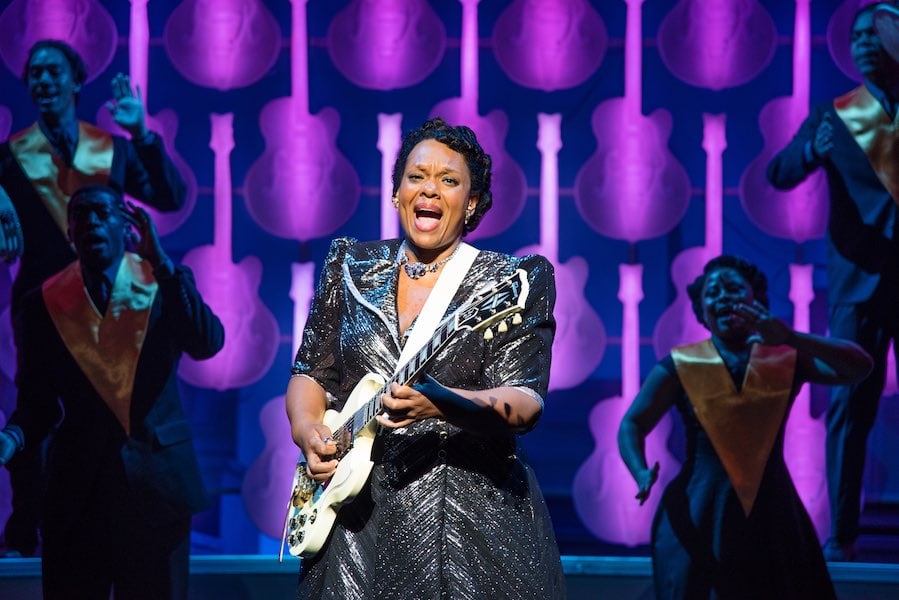
Debbie Jackson: Greetings, Carrie. We’re all looking forward to the show that has been in the making since before the pandemic. Performing as Rosetta Tharpe must be a real thrill.
Carrie Compere: Hi, yes, I am blessed to be part of a movement that’s happening in rediscovering who Rosetta was — her life, her music. She had a tremendous influence not just in the U.S. but globally, in international music. Her style has impacted what’s known as rock ‘n’ roll, crossover, gospel, and secular music, and the blend or fusion between the styles that had not been done before in this manner. She’s one of the first if not the first to accomplish that.
To be able to stand in the space where I’m able to introduce or reintroduce and present her story, her life, give voice to her, is truly a blessing and a gift.
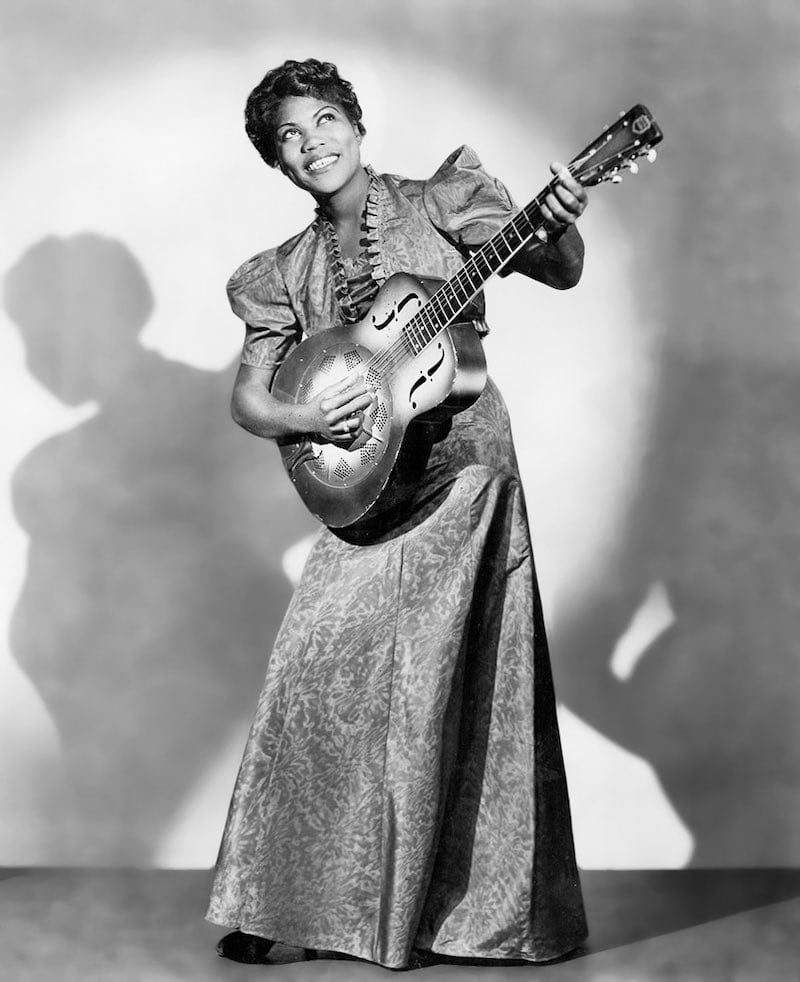
Playwright Cheryl L. West gave us a heads up about plans for the musical last year [Cheryl L. West on her Broadway-bound musical about Sister Rosetta Tharpe]. The show started at the Pasadena Playhouse when Sheldon Epps was artistic director, then a whole revamped production took shape in Seattle when you came on. The audition seemed to be a journey itself — share a little about that.
[Laughing] Yes, it was really unusual because I was auditioning for another role in the show! I was all prepped and read for the part and thought I was done. It was Cheryl L. West the playwright who asked the casting agents to have me read for Rosetta! She said from the time I walked in before saying a word, she saw what she was looking for, something in me for the character. I wasn’t expecting it so I wasn’t prepared, but they just gave me the script and songs and I gave it my best.
That’s an incredible story — what a testament that you don’t know what’s waiting for you, you just have to keep staying out there doing your best.
Exactly. Before the audition, I wasn’t even sure who Rosetta was. When I was completing a tour of Shrek from Broadway, a fellow from the UK mentioned to me that if I wanted to know the influence on Elvis Presley, what helped inspire his musical approach, you have to look up Sister Rosetta Tharpe. I was shocked that he knew more about my heritage than I did! Why hadn’t I heard about her in my years of musical training? It just goes to show how prominent she was nationally and internationally, and we need to make sure that everyone stays aware of her name and impact. She was creator of a musical movement with the style and sound that changed everything, and just slipped away from public knowledge. Her grave in Philadelphia was unmarked for years until a group of enthusiasts led by a female country star started bringing attention to her — now there’s at least a marking.
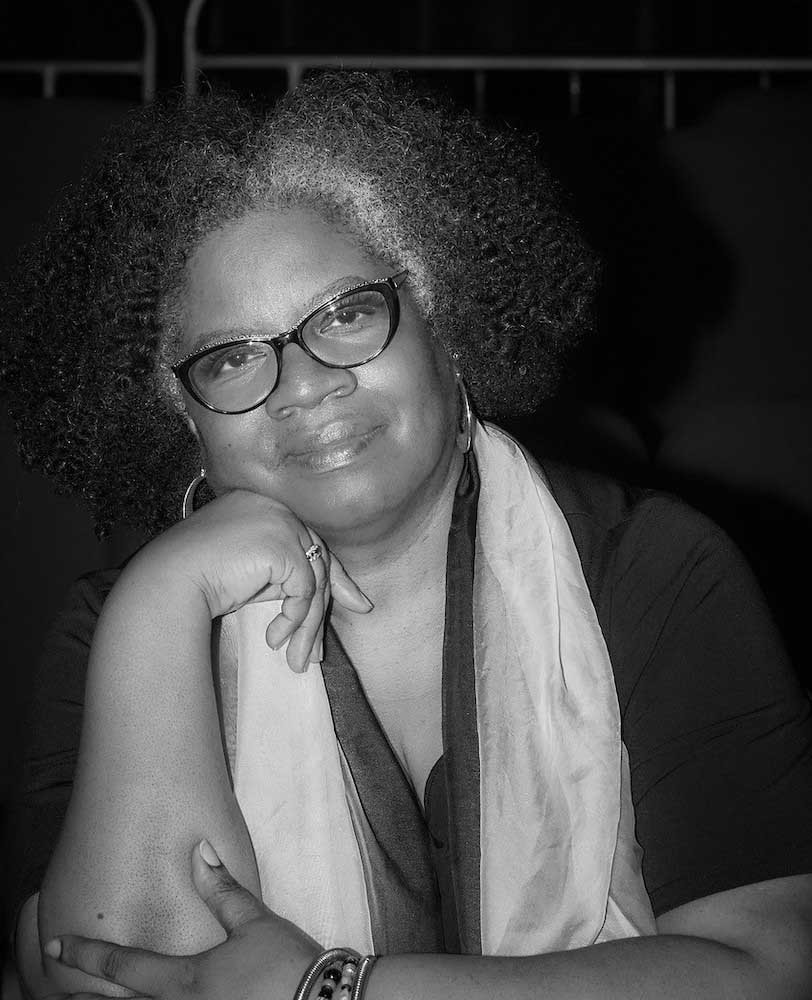
You mentioned that there’s not much footage of her speaking, but you took advantage of watching whatever video of her performances that you could.
Yes, I consumed any and everything I could about Rosetta Tharpe, her tonality, how she moved, her musicianship, down to playing the guitar. Her guitar seemed to be an appendage to her, how she moved across the stage and sang and played, like it was part of her body, she moved so effortlessly. I had my share of lessons trying to portray like it was second nature. She had such an ease, it was a form of communication — she talked with that guitar!
There’s so much I want to portray about her, to dig deep to get a sense of the person underneath all that acclaim and achievement. She was an incredible flesh-and-blood woman who withstood so much to find her place and be heard. That was a major quest of mine.
And behind all of that was the influence of her mom?
Yes, oh yes, I can’t say enough about the impact of seeing how much her mom was a part of her life and the personal thrill of bringing that to the stage. Her mom, Katie Bell Nubin, was an accomplished musician herself, a mandolin player of all things, and an evangelist. Rosetta performed with her mom from the time she was six years old, and they had an incredible relationship. It was truly profound and has a special impact on me since it reminds me of my relationship with my own mom, who is with me in spirit to this day. That mother-daughter relationship is so tangible, so potent. Mom Nubin is beautifully played by Carol Dennis, who enhances each scene with realism, tenderness, and grace. It’s a joy to work with her and the other actors.
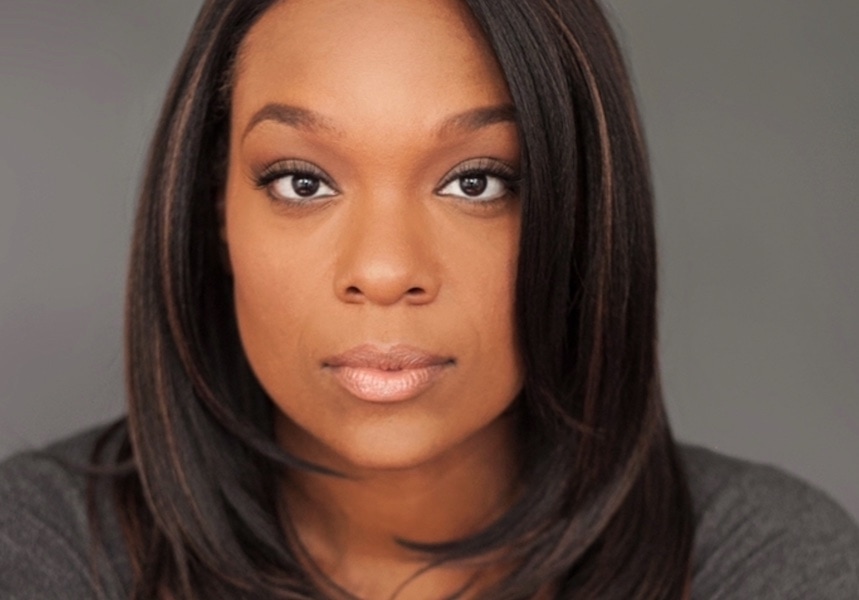
You shared that Cheryl L. West is totally involved in updating the show, has been adding, shaping, and cutting material from the Seattle Rep Theater production, and has continued even throughout rehearsals at Ford’s.
Absolutely, all the way through. In fact, she listened and learned so much from the original show and she revamped the play into an entirely new revised script from Pasadena to Seattle to now. It was amazing watching her work and craft it to get it just right, so each line moves the story forward. She also knows when to let it go, when the script needs to settle and live on its own. And entrust us as actors to bring it to life. Very special.
There’s so much there, a whole life, a journey, and movement.
It’s so hard to tell somebody’s life story — how do you decide what to include, what parts do you leave out? how can you relay the depth of the message? Playwright Cheryl L. West is so gifted, she captures the essence of Rosetta and navigates the ebbs and flows of her life.
There’s so much incredible music in here, to tell the story of course, but the show also gives a point of reference, for how familiar Rosetta’s music actually is. People have heard snippets of her music through styles that others have carried on, and you didn’t even know it, didn’t know she was the one who wrote it, or was the first to record it that way with that kind of style. We hear familiar passages and bouncy rhythms in Elvis [Presley] or Mahalia [Jackson] with no idea that Rosetta Tharpe was the first to lay it out like that. The music is a character throughout. And you’ll discover the woman you didn’t even know you knew. She’s embedded in the DNA of our music culture and heritage, and people need to know that.
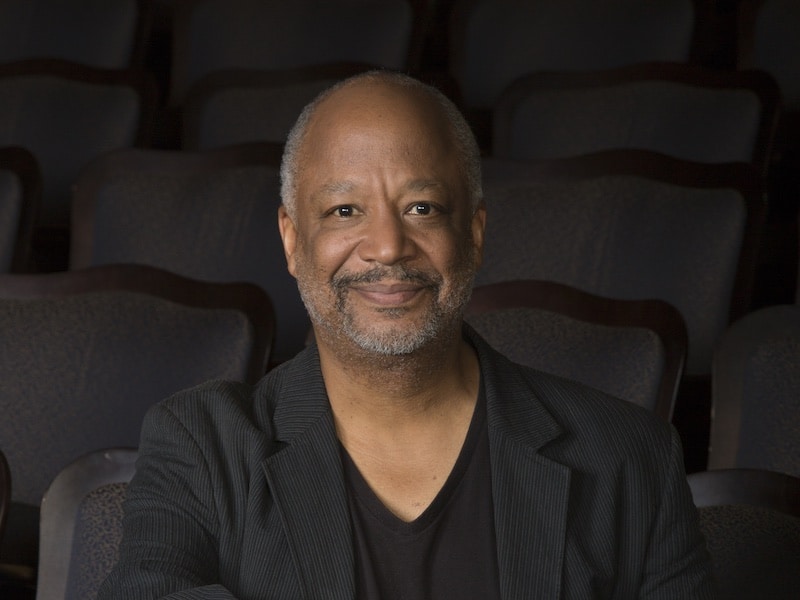
Speak a bit about the extensive collaboration to pull something like this together. Sheldon Epps, who is now senior artistic advisor at Ford’s, and José Carrasquillo, director of artistic programming, spearheaded the First Look Ford’s Theatre New Play Legacy Commissions just a couple of months ago, and I saw their handiwork in mentoring playwrights and new work [Free readings of new plays by BIPOC writers at Ford’s]. They’re part of this venture too, right?
Oh yes, Sheldon is production supervisor, eagle eye in seeing what works, what can be improved, helped to fine-tune to be the very best. It’s remarkable to watch how he and José, and the other designers, they get the playwright’s vision of what she wants to achieve, and all make concerted efforts to make it work.
I love the Ford’s space because you can feel the difference, your voice matters. It’s so assuring and comforting to be in a place where I can try out ideas, choices, approaches to the material — it goes beyond just learning the lines and blocking. It’s a holistic approach to the material when the playwright trusts you to do justice with the work to serve Rosetta, her life, and principles, and the designers are all on board to help make that happen.
It’s obvious how much this piece means to you.
It’s been an amazing life experience from the very beginning. In a way, it’s like my life journey has prepared me for this. And my family has supported me every step of the way. My mission is to go beneath the surface of Rosetta the performer and provide a glimpse of that little girl that grew up in a little Arkansas town. I’m still amazed at her strength and determination to keep pushing no matter what kind of barriers were thrown her way. In that time period, being a Black woman, there were so many constraints, her folks picked cotton, she was subjected to all kinds of stereotypes. And she wasn’t having it. She found an old rusty acoustic guitar and cut her own path so many ways.
You indicated that cutting her own path like that cut her away from the traditional circles, so she was actually rather isolated.
Yes, she started in gospel, but then as she brought the gospel sound into the secular space, then the church turned on her and she wasn’t welcomed there. Her crossover music and open lifestyle made her so unique she didn’t quite fit anywhere, she faced constant rejection but she kept going. Relaying her story is really helping to strengthen my own choices within myself.
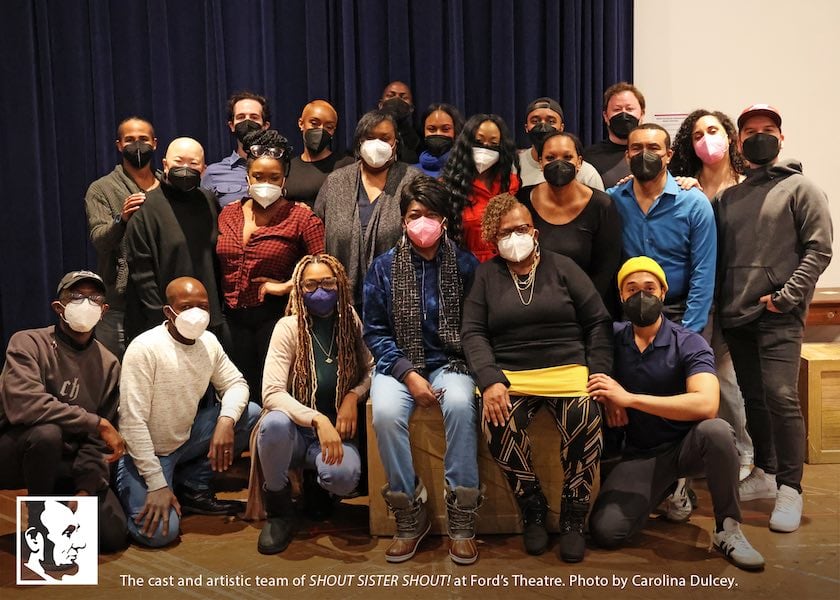
From all the clips I’ve seen the show looks remarkable. Considering where we are in coming out of the pandemic, some of us are venturing back out to see shows, this looks like the perfect enticement to return to the theater. Streaming has been fine and kept us going in earlier more lethal stages. But this combination of story, music, message, and history needs to be seen live on stage.
I couldn’t agree with you more. Her story has to be told, people need to hear her name. I encourage people to come out — it’s a rocking good time for sure, but even more important is the message in this sacred space. Knowing what happened here adds even more heartfelt awareness about honoring life. It’s a perfect place to give tribute to this unsung hero, Rosetta Tharpe, who wouldn’t take no for an answer, whose music and style have influenced generations to today. Portraying her life every day gives me hope and strength to feel I can do anything, and we hope the audience will leave the theater feeling the same way.
That’s the power of theater, telling the stories and hopefully seeing bits of ourselves in characters and between the lines. We’re all looking forward to this incredible time together, and we’re so thankful for your insights and messages about Rosetta Tharpe.
Thanks so much. It’s so good to be here. See you at the theater.
SHOUT SISTER SHOUT! plays March 15 to May 13, 2023 (Tuesdays to Saturdays at 7:30 p.m.; Saturdays and Sundays at 2 p.m.), at Ford’s Theatre, 514 10th Street NW, Washington, DC. Tickets are now on sale online and range from $36 to $90. Discounts are available for groups, senior citizens, military personnel, and those younger than age 40. For more information call (202) 347-4833 or (888) 616-0270 (toll-free).
The production is recommended for ages 12 and older.
COVID Safety: Face masks are strongly encouraged during all mainstage performances for patrons. Ford’s complete COVID-10 Health and Safety plan is here.
Accessibility: Ford’s Theatre is accessible to persons with disabilities, offering wheelchair-accessible seating and restrooms, assisted listening devices, and Braille and large print playbills. Accessible seating is available in both the rear orchestra and balcony sections. More information at fords.org/visit/accessibility.
GalaPro Captioning Services: Beginning March 27, 2023, all performances of SHOUT SISTER SHOUT! will be captioned via the GalaPro Free Closed Captioning Mobile App. GalaPro is available from the App Store or Google Play and allows patrons to access captioning on demand through their phone or tablet device. Patrons can set their phones to airplane mode and connect to the local GalaPro WiFi network before the performance begins. More information at fords.org/visit/





